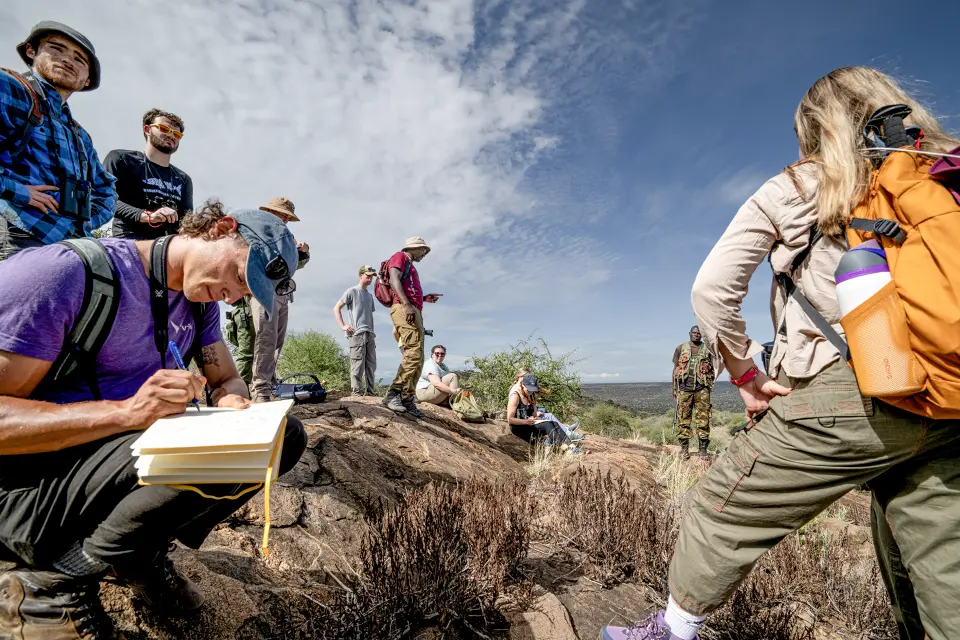SLU-Madrid Students Embark on Inaugural Academic Trip to Kenya
In April 2025, students from Saint Louis University-Madrid completed a 10-day conservation field course in Kenya, gaining firsthand experience in some of East Africa's most ecologically and culturally rich landscapes.
The course, EAS 4420: Environment and Conservation in Africa, was part of SLU-Madrid's Environmental Studies curriculum and was led by Iván Sánchez, Ph.D., in collaboration with the nonprofit Asociación Biomas (Bio+).
The program, which ran April 11-20, included travel across Kenya to critical ecological sites such as the Mpala Research Centre, Mount Kenya National Park, Lake Elementaita and Maasai Mara conservancies. Students engaged in biodiversity research, species tracking, ecological data collection, and community-based conservation projects.
"This course is the most meaningful teaching experience I have ever had," said Sánchez. "Students have 45 hours of classroom instruction to prepare them for the trip and the tasks they will carry out. But mainly, they encounter Africa — a continent with a transformative force like no other."
The field course was designed to help students move beyond textbook learning by directly interacting with the natural environment, local researchers, and Indigenous communities such as the Yaaku, who live in the Mukogodo forest. Activities included distance sampling of antelope populations, camera-trap data analysis, guided ecological hikes to high altitudes on Mount Kenya, and a boat-based wildlife survey on Lake Oloiden.
Sánchez, who has conducted research in Africa since 2009, said that the idea for the course emerged after years of students requesting to accompany him on fieldwork. The launch of the new B.A. in environmental studies at SLU-Madrid created the perfect framework for such an offering.
"Despite the initial difficulties and precautions, the new Rector, the co-directors, and my department placed their trust in the initiative," he said.
To ensure accessibility, the program was made more affordable through a partnership with Bio+, which facilitated logistics and enabled students to visit nontouristic areas where communities benefit directly from academic engagement.
Students participating in the trip not only developed fieldwork skills but also experienced the power of immersive, place-based education.
"Perception is everything," Sánchez explained. "In a time when many people are experiencing disconnection and widespread fear, a trip like this can serve as the perfect antidote — aiding in escaping social conditioning, perceiving deeper truths, and achieving personal freedom."
With the success of the program, plans are underway to offer the trip each spring, potentially with expanded offerings or new collaborative projects.
